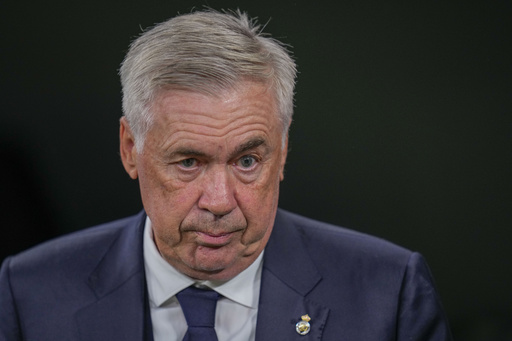At his inaugural press conference as England’s new head coach, Thomas Tuchel, a German national, addressed a question many anticipated. He was asked about his response to fans who might have preferred a coach from England to helm their national team. With a touch of humor, he said, “I’m sorry, I just have a German passport,” before expressing his admiration for English football and his deep respect for the role he has taken on. “I will do everything to show respect to this role and to this country,” he affirmed.
The long-standing rivalry between England and Germany is deeply rooted, and Tuchel’s German identity may invite scrutiny if he fails to produce positive results for a national side that has not claimed a men’s trophy since 1966. However, his appointment as the third foreign coach for England signifies a shifting perspective, suggesting that even prominent countries in soccer are stepping away from the traditional notion that national teams must be led by homegrown talent.
Currently, four of the top nine teams in the FIFA world rankings are guided by foreign coaches. In Germany, a nation that has prided itself on having only domestic coaches, candidates such as Dutchman Louis van Gaal and Austrian Oliver Glasner were seriously considered for the coaching position before the German football federation ultimately chose Julian Nagelsmann, a native German.
German soccer analyst and author Christoph Wagner commented, “The coaching methods are universal and applicable by all. What matters more is personality over nationality. A coaching genius might struggle if their players don’t grasp their methods.”
Contrasting opinions exist. British author and soccer journalist Jonathan Wilson remarked that having a foreign coach is an “admission of failure” for a significant soccer nation. He believes a nation’s best should compete against another’s, which should also apply to coaching talent. “To say we cannot find someone capable in our country to coach our players feels a bit embarrassing,” he added.
This sentiment was shared by British tabloid The Daily Mail, which criticized Tuchel’s hiring with the headline, “A Dark Day for England.” While it’s common to see foreign coaches in smaller nations or those ranked lower in the world, they remain a rarity among the established soccer powers. Italy, a four-time World Cup champion, has exclusively had Italian coaches. Spain has had its ranks filled only by Spanish nationals, while Brazil has never had a foreign coach since 1965, and France follows a similar pattern having only appointed French coaches since 1975.
It’s noteworthy that every team that has lifted the World Cup since its inception in 1930 has been coached by a national from that country. The same trend applies to the Women’s World Cup, which has never crowned a team with a foreign coach, although Jill Ellis, who guided the U.S. women’s team to two victories, was born in England but is a naturalized U.S. citizen.
Some coaches have made their mark by transitioning from one national team to another. Lars Lagerbäck, aged 76, coached Sweden from 2000-09 before leading Nigeria, Iceland, and Norway. He shared, “I couldn’t say I felt any significant difference; I felt they were my teams.” However, he acknowledged the challenges of language barriers and cultural adaptation, particularly during his brief stint with Nigeria during the 2010 World Cup.
For Lagerbäck, the success of coaching abroad largely hinges on the outcomes. He is fondly remembered in Iceland for taking them to Euro 2016, marking their first venture into an international tournament, especially after defeating England in the round of 16.
He cited the rigorous training and availability of skilled coaches in soccer powerhouses like Spain and Italy as reasons why they have not needed to recruit foreign leaders. This year at the European Championship, five of the coaches were Italian, with Spain’s victor, Luis de la Fuente, having previously led the youth teams.
In a historic move, Portugal appointed Spaniard Roberto Martinez as national team coach last year, breaking the norm of hiring from within. Brazil also explored the option of hiring Real Madrid’s Carlo Ancelotti but ultimately did not proceed. Ednaldo Rodrigues, the president of the Brazilian soccer federation, remarked, “It doesn’t matter if it’s a foreigner or a Brazilian; we are open to any nationality.”
The United States has seen a range of foreign coaches before Mauricio Pochettino, the former Chelsea manager, took the reins this year.
The English Football Association displayed no hesitation in welcoming Tuchel as the national team’s third foreign-born coach, following Swedish Sven-Goran Eriksson and Italian Fabio Capello, believing him to be the best candidate available. Unlike his predecessors, Tuchel has experience in English soccer, having won the Champions League with Chelsea, and communicates well in English.
Despite this, skepticism remains among doubters. “Hopefully, I can convince them and demonstrate that I’m proud to be the English manager,” Tuchel expressed, as he looks to unify the team and fans under his leadership.
